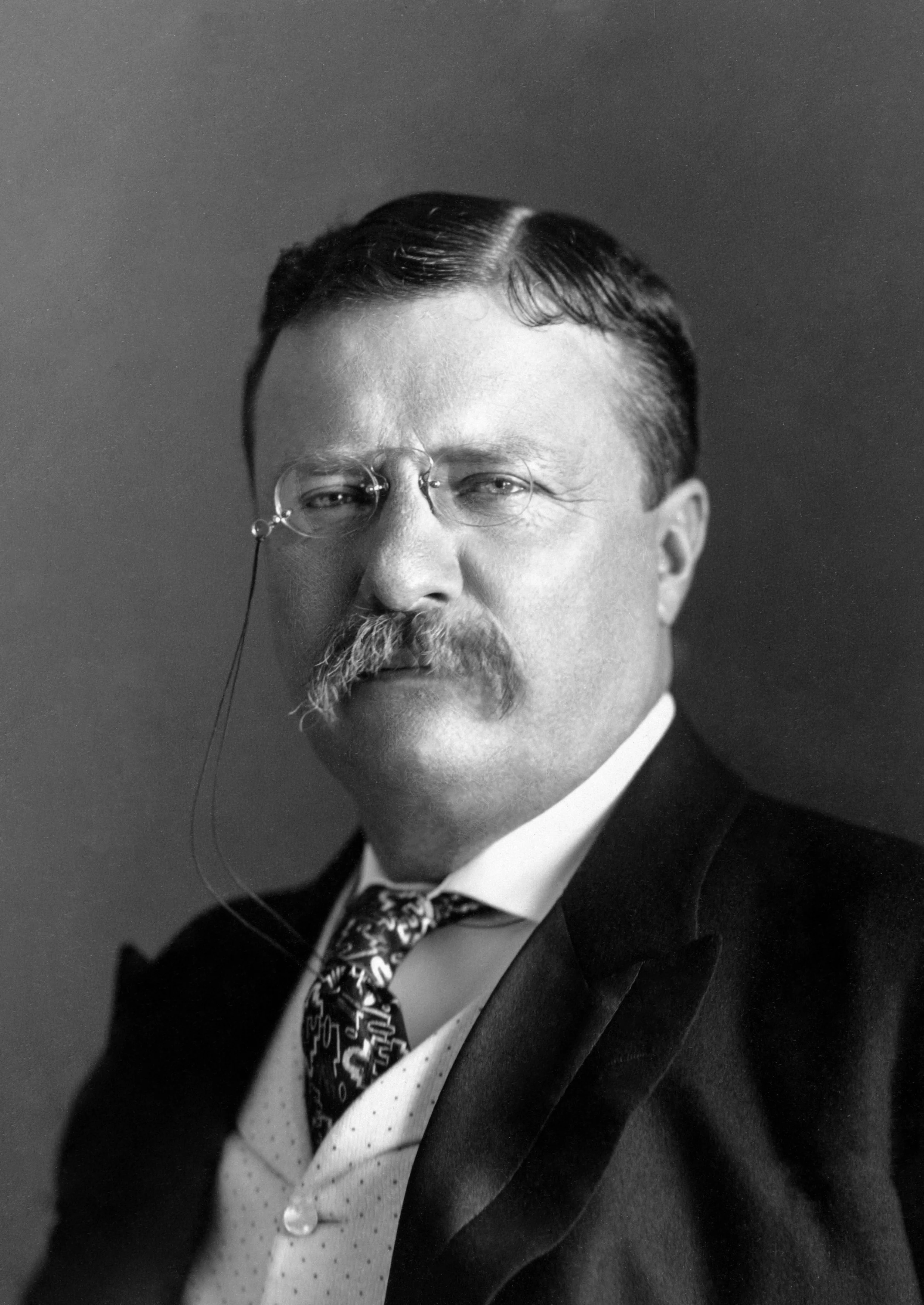Pach Bros., Public domain, via Wikimedia Commons
Why we think Teddy Roosevelt is a Type 8
Vigor and intensity: Roosevelt was a "force of nature." He was always active, whether he was giving speeches, exercising, or leading the Rough Riders during the Spanish-American War. His energy and presence were palpable to those around him.
A proponent of the “strenuous life”: Despite facing health challenges as a child, Roosevelt developed a robust physique in adulthood and was consistently advocating for hard work, perseverance, and physical fitness. He loved hunting, exploring, boxing, and martial arts.
Confident and assertive: Roosevelt had a strong presence and wasn't afraid to speak his mind or take decisive action. This assertiveness earned him the title of a "bull moose," especially after his split from the Republican Party to form the Progressive Party. He was never one to back down from a challenge.
Animated and intense speaker: When delivering speeches, Roosevelt spoke with incredible passion and vigor. He used gestures and wildly varied his tone to emphasize his points, making him a captivating speaker. His famous "Man in the Arena" speech, as an example, was direct, emphatic, and powerful. As part of this speech, he said, “The credit belongs to the man who is actually in the arena, whose face is marred by dust and sweat and blood; who strives valiantly… who at the best knows in the end the triumph of high achievement, and who at the worst, if he fails, at least fails while daring greatly, so that his place shall never be with those cold and timid souls who neither know victory nor defeat. Shame on the man of cultivated taste who lets refinement to develop in to fastidiousness that unfits him for doing the rough work of a work day world.”
Intense and piercing gaze. His eyes were one of his most distinctive features, reflecting his determination and focus.
Emphasizing strength: His famous saying, "Speak softly and carry a big stick," exemplifies his approach to foreign policy and personal interactions. While advocating for diplomacy (the "speak softly" part), Roosevelt always emphasized having strength and power at the ready (the "big stick").
Reaction to personal tragedies: After the deaths of his mother and first wife on the same day, Roosevelt coped by moving out West and living a rugged, strenuous life. His instinct in response to pain and vulnerability was intensified strength and resilience.
Protection of the underdog: Roosevelt's Square Deal policies and his passion for “trust-busting” (breaking up monopolies) reflect his instincts for confrontation, especially to address perceived injustices and to protect the vulnerable. For example, he boldly took on J.P. Morgan's railroad monopoly, an action few presidents before him had dared to take.
Willingness to bypass obstacles to achieve his objectives: When a coal strike threatened to leave Americans without heat in the upcoming winter, Roosevelt intervened. He threatened to use the U.S. Army to run the coal mines if the owners didn’t agree to arbitration. He was also instrumental in the U.S. acquisition of the land to build the Panama Canal. When Colombia, which had sovereignty over Panama, refused to agree to U.S. terms, Roosevelt supported Panama's independence movement. Once Panama was independent, they quickly agreed to Roosevelt’s terms. He was consistently willing to use force and break through obstacles in order to get his way.
Impulsivity: Roosevelt was known to act quickly, sometimes without fully weighing the consequences. For instance, his decision to send the Great White Fleet on a world tour was a show of American might, but it was also expensive and not entirely necessary. This is also indicative of his 7 Wing.
Adventurous spirit and a sense of bravado: “Roosevelt didn’t do idle vacations. Whether ranching in the Dakotas, cougar hunting in Arizona, or going on a yearlong safari in Africa, his travels had always involved hardship and risk.” This was also evident in his Amazonian expedition post-presidency, which nearly cost him his life. “Despite having little experience in the jungle, the burly 55-year-old journeyed to Brazil and set out on a trip down an uncharted tributary of the Amazon: the mysterious Rio da Dúvida, or River of Doubt.” About the expedition he wrote, “If it is necessary for me to leave my bones in South America, I am quite ready to do so” [history.com].
Boxing in the White House: Even as President, he participated in boxing matches in the White House until an injury to his eye forced him to switch to jiu-jitsu.
Teddy Roosevelt quotes that show he is a Type 8
"Speak softly and carry a big stick; you will go far."
"I don’t pity any man who does hard work worth doing. I admire him. I pity the creature who does not work, at whichever end of the social scale he may regard himself as being."
"The unforgivable crime is soft hitting. Do not hit at all if it can be avoided; but never hit softly."
"If you could kick the person in the pants responsible for most of your trouble, you wouldn't sit for a month."
"In any moment of decision, the best thing you can do is the right thing, the next best thing is the wrong thing, and the worst thing you can do is nothing."
"I wish to preach, not the doctrine of ignoble ease, but the doctrine of the strenuous life."
"Every man who expresses an honest thought is a soldier in the army of intellectual liberty."
"No man is worth his salt who is not ready at all times to risk his well-being, to risk his body, to risk his life, in a great cause."

